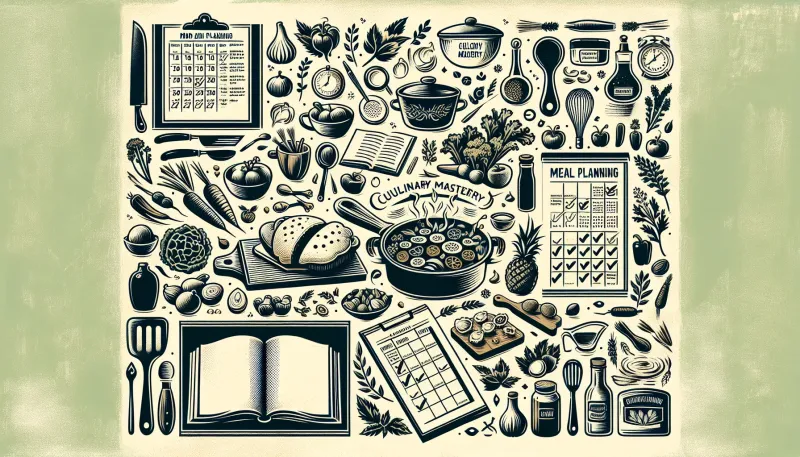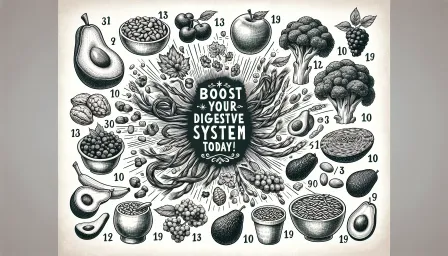Mastering Cooking at Home and Meal Planning: A Comprehensive Guide

Learn how to master cooking at home and meal planning with our comprehensive guide. Improve your culinary skills, save time, and enjoy healthier meals.
In today's fast-paced world, mastering cooking at home and effective meal planning can make a substantial impact on your health, time, and budget. Whether you're a novice in the kitchen or looking to refine your culinary skills, this comprehensive guide provides the tools and knowledge needed to excel. Follow our expert tips and transform your approach to meals with actionable insights.
Why Cooking at Home is Important
Cooking at home offers numerous benefits including greater control over ingredients, portion sizes, and nutritional content. By preparing your own meals, you can tailor dishes to meet dietary preferences and avoid unhealthy additives. Additionally, home-cooked meals tend to be more economical than dining out.
Health Benefits
Home cooking allows for a healthier diet, as individuals can select fresh ingredients and avoid processed foods. Research indicates that people who frequently cook at home consume fewer calories, less sugar, and unhealthy fats compared to those who dine out regularly.
Economic Advantages
Cooking at home can lead to significant cost savings. Buying ingredients in bulk, utilizing leftovers, and controlling portion sizes reduces food expenses. Meal planning further enhances this by minimizing food waste.
Essential Cooking Skills
To master home cooking, it’s essential to develop and refine basic culinary skills. Start with foundational techniques and gradually expand your repertoire.
Knife Skills
Proper knife skills improve efficiency and safety in the kitchen. Learn techniques for chopping, dicing, slicing, and mincing. Using the right type of knife for each task enhances control and precision.
Meal Prep Techniques
Effective meal prep includes planning, prepping, and storing ingredients to streamline the cooking process. Batch cooking, pre-cutting vegetables, and marinating proteins are practical strategies to save time during busy weekdays.
Understanding Flavor Profiles
Comprehending how flavors interact is crucial for creating delicious meals. Experimenting with herbs, spices, and seasoning will enhance your dishes' taste and complexity. Balancing sweet, salty, sour, and bitter elements ensures well-rounded meals.
Meal Planning Strategies
Meal planning is a critical component of efficient home cooking. It involves organizing meals in advance to save time, reduce stress, and maintain a balanced diet.
Creating a Meal Plan
Start by outlining your weekly schedule, including work commitments and social engagements. Allocate specific meals for each day, ensuring you have a variety of proteins, vegetables, and whole grains. Incorporate leftovers to minimize food waste.
Grocery Shopping Tips
Effective grocery shopping is an integral part of meal planning. Make a list based on your meal plan and stick to it to avoid impulse purchases. Shop for seasonal produce to enjoy fresh, flavorful, and cost-effective ingredients.
Stocking a Functional Pantry
A well-stocked pantry provides a foundation for quick and versatile meal preparation. Keep essential items such as grains, legumes, spices, and canned goods. Regularly review and restock your pantry to ensure you have necessary ingredients on hand.
Practical Tips for Busy Individuals
For those with hectic schedules, implementing practical strategies can make cooking at home and meal planning more manageable.
Batch Cooking
Batch cooking involves preparing large quantities of food at once and storing portions for future meals. This approach saves time and provides ready-to-eat options on busy days. Consider batch cooking staples like soups, stews, and casseroles.
Freezer-Friendly Meals
Freezing meals is a convenient way to ensure you have healthy options available when time is limited. Label and date freezer containers to track freshness. Popular freezer-friendly meals include lasagna, chili, and stir-fries.
Utilizing Kitchen Gadgets
Modern kitchen gadgets, like slow cookers, pressure cookers, and food processors, can significantly reduce cooking time and effort. Invest in versatile appliances that suit your cooking style and enhance efficiency.
Conclusion
Mastering cooking at home and meal planning requires dedication and practice, but the benefits are well worth the effort. By honing your culinary skills, organizing meals in advance, and utilizing practical strategies, you can enjoy healthier, cost-effective, and delicious meals. Begin your culinary journey today and experience the myriad advantages of home-cooked meals.
Remember, the key to success is consistent effort and a willingness to experiment. Whether you're cooking for yourself or your family, the skills and knowledge gained will contribute to a more enriching and fulfilling lifestyle.



























